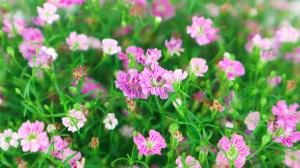Is Corn Plant Toxic to Cats?
Cats are curious creatures, and their mischievous nature often leads them to explore their surroundings. But as a pet owner, it's your responsibility to ensure that your cat is safe, especially when it comes to your indoor plants.
Corn plant, also known as Dracaena fragrans, is a popular houseplant that adds beauty and elegance to any indoor setting. However, as much as you may love having this plant in your home, you might be worried about its safety around your feline friend. So, is corn plant toxic to cats?
Corn Plant Toxicity in Cats
Corn plant is considered mildly toxic to cats, according to the ASPCA. This means that if your cat ingests any part of the plant, it may cause digestive upset, including vomiting, diarrhea, and loss of appetite. The plant contains saponins that can cause gastrointestinal irritation in cats.
Moreover, if your cat chews on the corn plant's leaves, it may also develop oral irritation, such as swelling or redness in the mouth and tongue. In rare cases, the plant can cause a more severe reaction, including difficulty breathing or dilated pupils.
Symptoms of Corn Plant Toxicity in Cats
If you suspect that your cat has ingested or chewed on the corn plant, there are several telltale signs that you should look out for. Some of the most common symptoms include:
Vomiting
Diarrhea
Loss of appetite
Oral irritation
Swelling or redness of the mouth and tongue
Difficulty breathing (in rare cases)
Dilated pupils (in rare cases)
If your cat shows any of these symptoms after coming into contact with the corn plant, you should contact your veterinarian immediately.
Preventing Corn Plant Toxicity in Cats
The best way to protect your cat from corn plant toxicity is to keep the plant out of their reach. You can place the plant on a high shelf or in a room that your cat doesn't have access to. If you have a curious kitten, consider putting the plant in a hanging basket to keep it safely out of reach.
You should also monitor your cat's behavior around plants and watch out for any signs of chewing or eating on them. If you notice that your cat likes to nibble on plants, you can offer them some cat grass or other safe indoor plants that they can enjoy without any risk to their health.
Cats and Houseplants: Tips for a Safe Environment
While corn plants are mildly toxic to cats, they are just one of many houseplants that can pose a threat to your feline friend. As a pet owner, it's essential to educate yourself on what plants are safe for cats and what plants to avoid. Here are some tips for creating a safe environment for your cat:
Research the toxicity of plants before bringing them into your home.
Keep all plants out of your cat's reach.
Offer your cat safe indoor plants to nibble on, such as cat grass.
Watch out for any signs of plant-based toxicity and contact your vet immediately if you notice any.
By taking these precautions, you can create a safe and happy environment for both you and your feline friend to enjoy.
Conclusion
Although corn plants are beautiful and easy to care for, they are mildly toxic to cats. If you have a cat, it's best to avoid bringing this plant into your home, or at least to keep it out of their reach. Be sure to watch out for any symptoms of plant-based toxicity in your cat, and contact your vet immediately if you notice any concerning behavior. By creating a safe and nurturing environment, you can enjoy the companionship of your furry friend while still enjoying beautiful indoor plants.

 how many times do yo...
how many times do yo... how many planted tre...
how many planted tre... how many pine trees ...
how many pine trees ... how many pecan trees...
how many pecan trees... how many plants comp...
how many plants comp... how many plants can ...
how many plants can ... how many plants and ...
how many plants and ... how many pepper plan...
how many pepper plan...






























